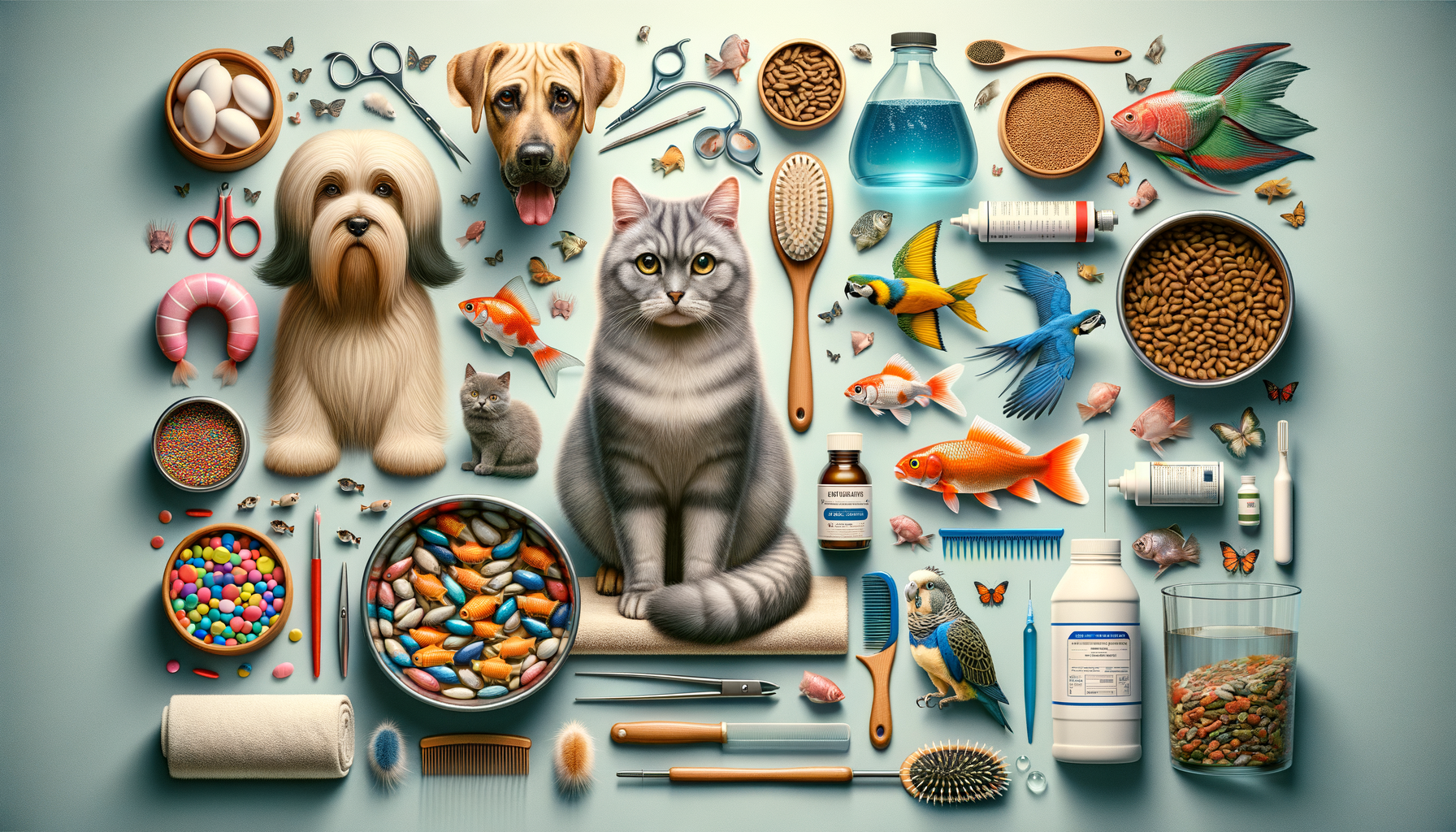
Explore Pet Helath,Care, Grooming and Nutrition Options
The Importance of Regular Veterinary Check-Ups
Ensuring your pet’s health is a continuous journey, and regular veterinary check-ups are a cornerstone of this process. These visits are not only about vaccinations but are comprehensive health assessments that can detect potential issues before they become serious. Regular check-ups allow veterinarians to monitor your pet’s weight, dental health, and overall physical condition, ensuring they are on the right track for a long, healthy life.
During these visits, vets can also provide valuable advice on preventive care, such as flea and tick prevention and heartworm medication. This proactive approach can save you from costly treatments down the line and spare your pet from unnecessary discomfort. Additionally, routine blood tests and screenings can uncover hidden health concerns, like kidney disease or diabetes, early on.
Regular veterinary visits also help in building a medical history for your pet. This record is crucial for identifying trends in your pet’s health and making informed decisions about their care. In essence, these check-ups are an investment in your pet’s future, ensuring they remain a happy and active part of your family.
Grooming: More Than Just Aesthetic Appeal
Grooming is often seen as a way to keep your pet looking their best, but it goes far beyond aesthetics. Regular grooming sessions are vital for maintaining your pet’s health and hygiene. Brushing your pet’s coat helps in removing dirt and loose hair, preventing matting and tangles that can cause skin irritation.
Moreover, grooming provides an opportunity to check for signs of skin problems, parasites, or unusual lumps and bumps. Early detection of these issues can lead to timely treatment and prevent more severe health problems. Grooming also includes essential tasks like nail trimming, which is crucial for preventing painful overgrowth that can affect your pet’s ability to walk comfortably.
Regular ear cleaning and dental care are also part of a comprehensive grooming routine. Keeping your pet’s ears clean reduces the risk of infections, while dental care prevents tartar buildup and gum disease. Overall, grooming is an integral part of your pet’s healthcare regimen, contributing to their comfort, health, and happiness.
Nutritional Needs: Feeding for Health and Longevity
Nutrition plays a pivotal role in your pet’s overall health and well-being. A balanced diet provides the necessary nutrients that support growth, energy, and immune function. When selecting food for your pet, it’s important to consider their age, size, breed, and any specific health needs.
For instance, puppies and kittens require food that supports rapid growth and development, whereas senior pets may need diets tailored to their slower metabolism and potential health issues like arthritis. Additionally, pets with allergies or digestive sensitivities may benefit from specialized diets that avoid certain ingredients.
Feeding your pet a nutritious diet can prevent obesity, a common issue that can lead to serious health problems such as diabetes, heart disease, and joint problems. Regularly consulting with your veterinarian about your pet’s diet can ensure you’re meeting their nutritional needs and making any necessary adjustments as they age or their health status changes.
Incorporating high-quality, well-balanced food options into your pet’s diet is a proactive step towards ensuring their long-term health and vitality.
Exercise and Mental Stimulation: Keeping Your Pet Active
Exercise is crucial for maintaining your pet’s physical health and preventing obesity. Regular physical activity helps to strengthen muscles, improve cardiovascular health, and reduce behavioral issues. Depending on your pet’s breed and age, their exercise needs may vary significantly.
For dogs, daily walks, playtime, and activities like fetch or agility training can provide the necessary physical outlet. Cats, on the other hand, may benefit from interactive toys that stimulate their natural hunting instincts. It’s important to tailor the intensity and duration of exercise to your pet’s individual needs to avoid overexertion.
Mental stimulation is equally important for your pet’s well-being. Boredom can lead to destructive behaviors, so providing toys, puzzles, and training sessions can keep their minds engaged. Activities like obedience training or teaching new tricks can also strengthen the bond between you and your pet.
By incorporating both physical and mental exercises into your pet’s routine, you help promote a balanced lifestyle that supports their overall health and happiness.
Creating a Safe and Comfortable Environment
Your pet’s environment plays a significant role in their health and happiness. Creating a safe and comfortable space is essential for their well-being. This includes providing a clean, cozy sleeping area, access to fresh water, and a safe place to play and explore.
Pet-proofing your home can prevent accidents and injuries. This involves securing hazardous substances, ensuring electrical cords are out of reach, and providing secure fencing in outdoor areas. Additionally, ensuring your pet has a quiet, stress-free space to retreat to can reduce anxiety and promote relaxation.
Temperature control is also important, as pets can be sensitive to extreme heat or cold. Providing access to shade and shelter, as well as monitoring indoor temperatures, ensures your pet remains comfortable year-round.
By taking these steps, you create an environment that supports your pet’s physical and emotional health, allowing them to thrive as a cherished member of your family.


